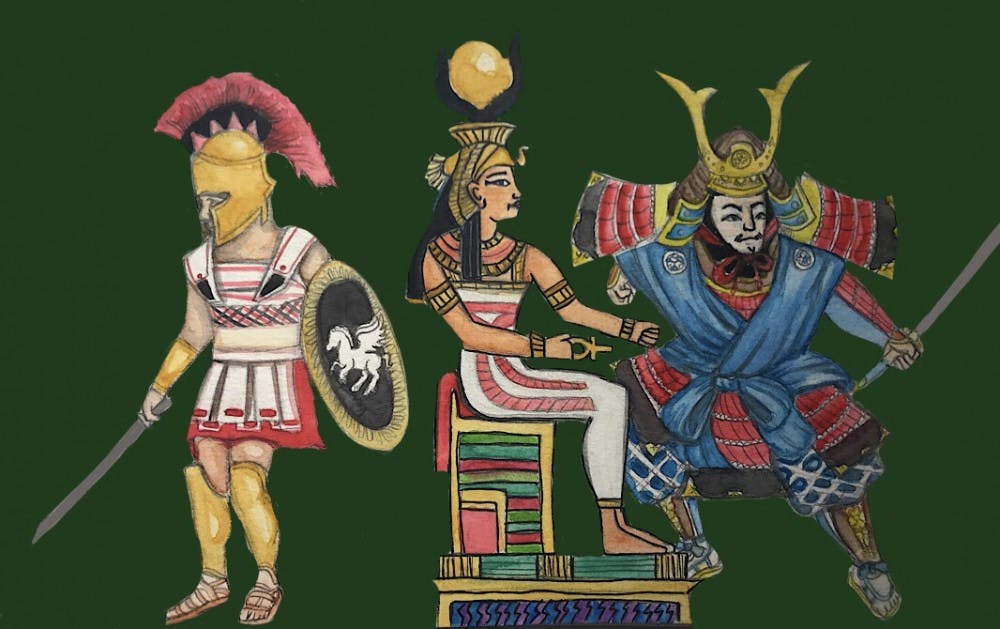The terms Medieval and Renaissance are often associated with images of heroic knights shouldering long swords, inspired painters grasping brushes and an endless stream of white faces.
But that is something that the Race Before Race Symposium is trying to change.
The Arizona Center for Medieval & Renaissance Studies will be hosting the first Race Before Race Symposium at ASU's Carson Ballroom on Jan. 18 and 19.
The event will bring together Medieval and Renaissance scholars from across the country to create an open dialogue about race in pre-modern times.
Ayanna Thompson, the director of the ACMRS and ASU professor, said for there to be significant change in current views on race during these eras, the conversations surrounding them need to be accessible to the public instead of getting lost in the world of academia.
“The prevailing wisdom until the last 20 or 30 years was that race does not exist in pre-modern times,” Thompson said. “You are applying logic and knowledge from a later time period and then kind of shoehorning it into these early periods.”
The event, which is free and open to the public, creates a space for academics to come together and help dispel some of these misconceptions.
Shokoofeh Rajabzadeh, a symposium panelist and PhD candidate at UC Berkeley, said there are a lot of misconceptions around the issue of race and the idea that racism and people of color did not exist in pre-modern England.
"It’s kind of imagined as this time where white people ruled, or a period of white dominance where the problems that come from racism and diversity did not exist," Rajabzadeh said. "It’s one of the things that scholars have been saying for a long time now, that this is not true."
Dorothy Kim, symposium panelist and assistant professor of English at Brandeis University, said popular media validates these false visions of the medieval and renaissance eras.
Kim said the series "The Lord of the Rings" and other films or video games within the fantasy genre, have shown a historic leaning towards colonial white societies.
“The number one gateway or interaction that most of the general public in the world has with the Medieval past is through the interface of video games and media,” she said. “I think the thing is, it's so hard because the media maker often believes these myths, and then they feed into that.”
The results of these misconceptions, however, go beyond popular media fantasies.
White supremacy groups have long appropriated Medieval imagery. The Othala Rune, which is a letter in a Medieval alphabet, was appropriated by the Nazis. More recently, it replaced swastikas as the symbol for the National Socialist Movement, a neo-Nazi group, according to an article from CNN.
“There's a whole frame now in which the Middle Ages are seen by so many of the white nationalists, white supremacists, KKK, etc. as this pure cultural heritage — this white national past," Kim said. "And so they really like to locate that in their idea of pre-modern western Europe.”
Thompson said she is proud that the event includes scholars of color and is dedicated to opening up discussions of pre-modern race.
"Medieval and Renaissance scholars rarely get to talk to each other," Thompson said. "It is also incredibly profound to have that conversation be centered around race and produced by five scholars of color."
Even though the discussions aim to address serious issues surrounding race, the event is not targeted against anyone, said Kim Hall, symposium panelist and professor of English at Barnard College.
“I sometimes feel that when people who haven't been in this field hear that there are scholars coming together talking about race, and particularly if they are a lot of scholars of color, they think it's a bunch of people of color coming together to trash white people," Hall said.
"One of the things that I over and over come to appreciate is that we are angry about injustice, but we also come to this work with a lot of love and joy, both looking at material you're working with and for each other," she said.
Reach the reporter at wpmcclel@asu.edu and follow @wpmcclelland on Twitter.
Like The State Press on Facebook and follow @statepress on Twitter.




